Ella Bernie
Being passionate about what you do and finding work that aligns with your values is so important. At a young age, Charlie Rogers realised there were other ways to approach working – he could have a purpose-driven career, and he could do it on his own terms. That ignited an interest in the future of work and the potentials of a portfolio career.
With plenty of experience under his belt founding companies, running passion projects and working with startups, Charlie joined TPC in April 2023 as our Executive Team Coordinator.
We sat down with him to find out more about how he found his way to The Portfolio Collective.
To start off, we’d love to hear a little about your background and the journey that led you to The Portfolio Collective.
I guess I’ll go all the way back to my time at university. I studied International Business at Loughborough University, knowing that I wanted to learn everything I could about starting my own business. While there, I got heavily involved in Enactus, which is an international student organisation that focuses on social action and enterprise. It gave me exposure to the idea that business isn’t just about profit, it’s actually about having a purpose too.
In my second year of uni, lots of friends and course mates started applying for placements, as did I, but in the back of my head, I kept thinking, “I have this list of 100+ business ideas, why don’t I just do one of them instead?”. So that’s exactly what I ended up doing. During my Year in Enterprise, which is what they call it at Loughborough, I started working on a business idea called Postey, which was a parcel box that attached to houses removing the need for the ‘sorry we missed you’ slips. We actually prototyped it and had physical boxes on houses that could receive deliveries and everything, which was pretty cool.
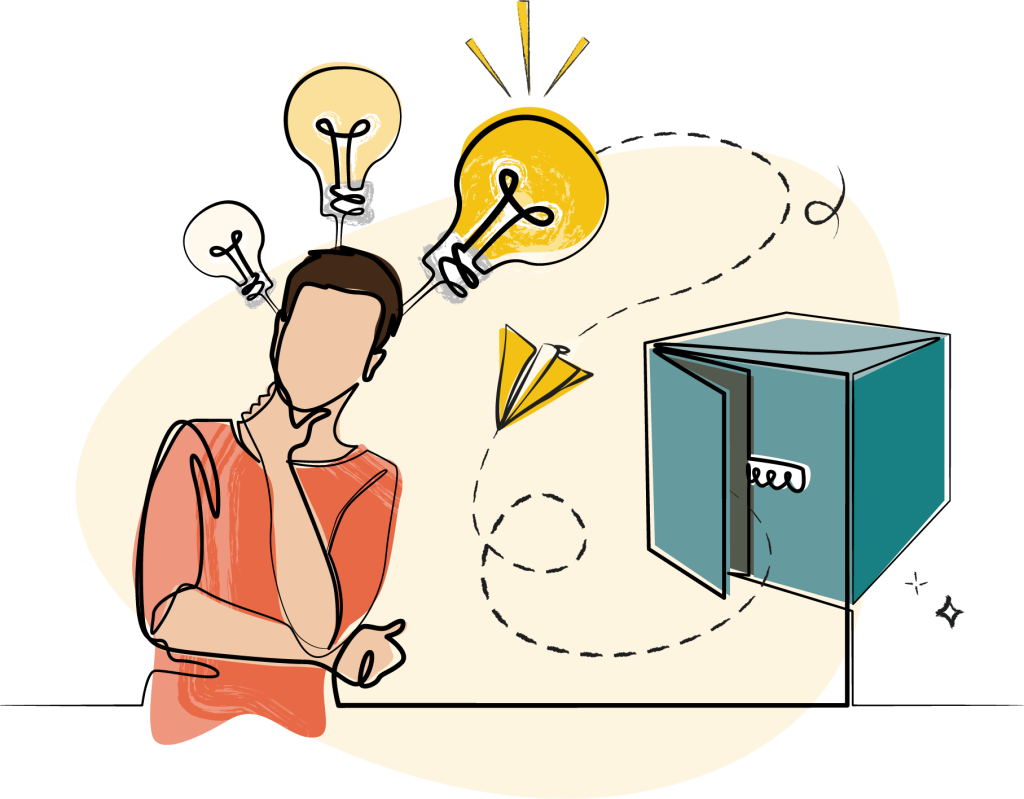
I did lots of other things too – like summer school in China and a half year study in Denmark – and kept coming back to all these entrepreneurial projects. During Covid, I was living with my Enactus friends and decided to start my second business. Everyone around us was losing their summer internships or graduate jobs because of Covid, and we knew lots of founders who were challenged by Covid and had to adapt their businesses pretty quickly. There were students with lots of time on their hands and businesses with new problems that needed solving, so we decided to have a hackathon. We hosted our first one online in April 2020 with three businesses and nine students and it grew from there into House Hack, which ended up hosting almost 30 hackathons and had a community focused on project-based learning before turning into an application process for startups. It’s like a case study, but the case study was real and the impact was real – it was a great experience.
There was a clear theme throughout all of these experiences: I’m really eager to learn, to try different things and to keep developing. In November 2021, I asked my network what sort of work they had available and I ended up becoming a project manager, which is where I really started building my operational skills. During this time, I also started exploring everything to do with the future of work and knew I needed to write about what I discovered. That’s how I started my newsletter for multipotentialites called Mastery in your 20s.
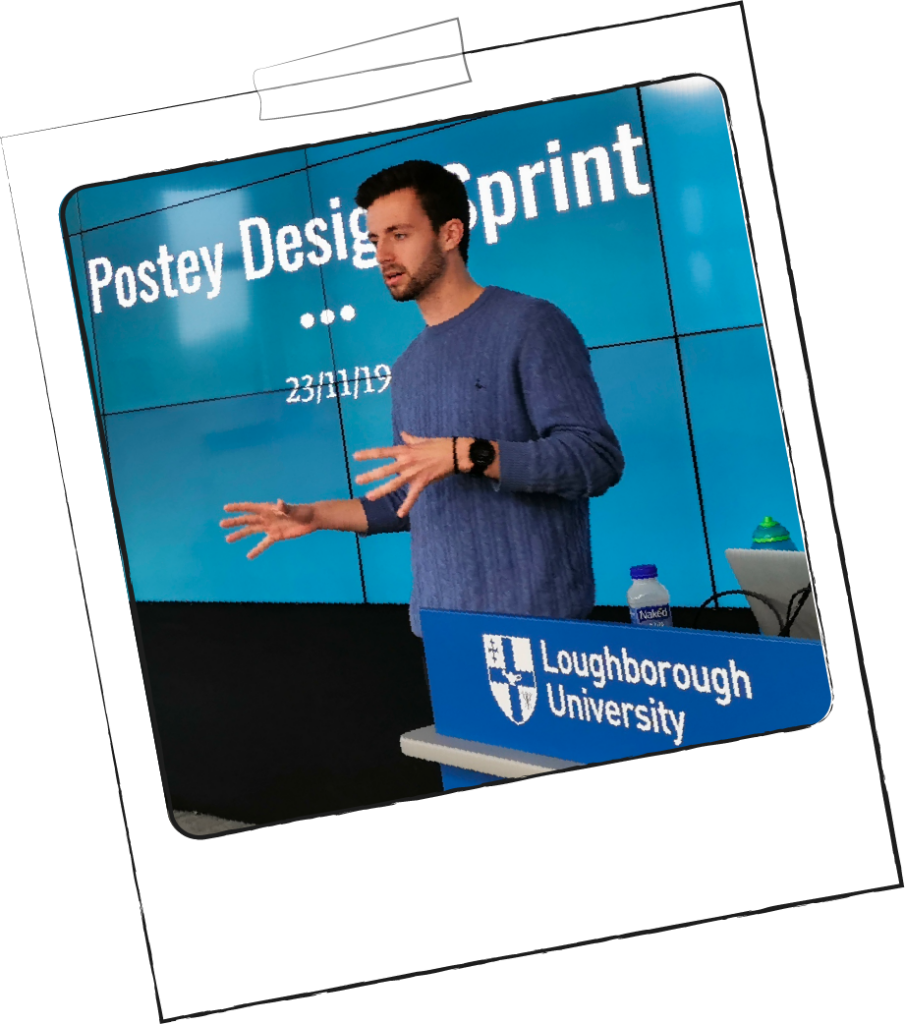
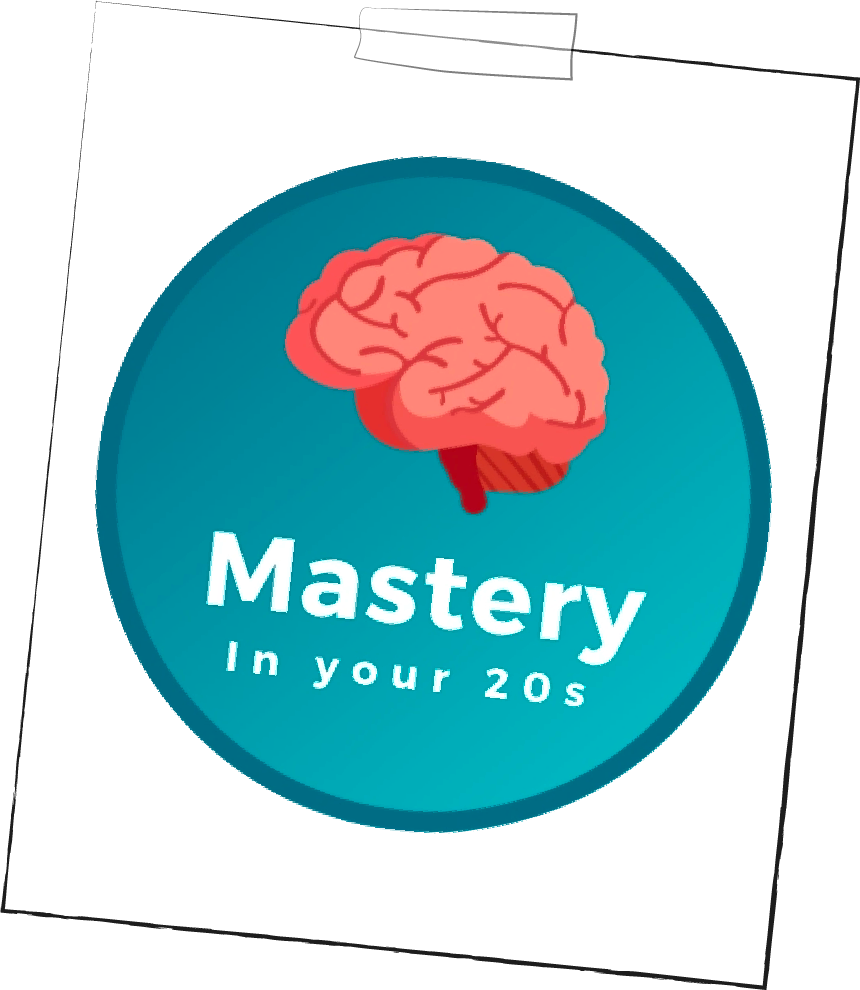
From then, and for the next year and a half, I had a portfolio career doing lots of different things, including coaching, consulting and being on the LinkedIn Creator Programme. Then at the beginning of this year, I decided I really wanted to focus and double down on what’s important to me, rather than just doing lots of different things. I wanted to build leverage in the future of work space, particularly with an end goal of consulting with big corporations on actually making work meaningful to enable human flourishing. I realised it would be quite challenging to do that without the case studies to show it. I have the experience from working with small startups, but knew I needed to have it from the other side, of being the implementer, the one doing the grunt work day in, day out.
I thought the best way to achieve that was to go in on the other side of the business which is what brought me here to TPC. It makes so much sense to me, because TPC obviously focuses on portfolio careers, it overlaps with my community of multipotentialites and I knew the role was the best place to embed all the different ideas that I have.
So you’ve touched on your interest in the future of work and new ways of working. What sparked your passion for that?
I think it was partly because of my second business, House Hack. I believe anyone can do anything with the right training and the right skills. When running the hackathons, it was really interesting working with people and giving them the confidence to do things they hadn’t done before. That opened my eyes to the fact that we can do businesses differently if we have the right things in place and the right people around it. I didn’t want to spend all my time entering data into spreadsheets, and that gave me a passion and drive to avoid falling into a job I hated.
I’ve always been entrepreneurial. I started my first side hustle selling sweets at 14 and then a few other projects and businesses throughout school. I think the dislike of doing boring or unnecessary work multiplied by an entrepreneurial solution drew out that interest in different ways of working.
You’ve mentioned being entrepreneurial from a young age. What do you enjoy about the entrepreneurial side of things?
It’s partly the creative side of being entrepreneurial. I like having an idea and running with it. When I had my first business, there was a big personality shift. I went from being a bit of a visionary who thought I could change the world with these parcel boxes to being absolutely lamented in a funding pitch where someone said I had no evidence or product, which he was completely right about in hindsight.
That experience changed me and helped me shift into a more practical mindset, which has allowed me to balance being entrepreneurial with having a planner mentality where I look at things in steps and iterate and improve things as I go. I had that with the newsletter I started, which became a community and is now growing again, as well as with other projects I’ve worked on.

And taking things back a little bit, it’d be great if you could explain to the community a bit more about your role at TPC. What does a typical day look like for you?
When I explain it to people I say: I run internal projects, make everyone else’s lives easier and pick up things when they get dropped. More technically, I support the executive team to make them more effective. I also bounce around between different departments and projects, helping everything run smoothly.
A typical day means a lot of meetings. It also means a bit of time on Asana boards, managing projects and, at the moment, it also means spending quite a bit of time creating contracts. I talk a lot with Ben and Fiona about the team and how we best approach things, all whilst building the company. So I there’s advising them and being a soundboard and then also being a spokesperson for the rest of the team.
I see the role in two parts. There’s the admin side of things, getting things done that need to be done. And then there’s the advisory, founder’s associate side of things where I get to share my perspective with the help of the team and also my own experience with the future of work.
If anyone was to have a brief look at your LinkedIn or your TPC profile, they would see that you’re currently training for an Ironman and that you’re also a semi-professional triathlete. How did you get into that?
School plays a big part in that. When I was 13, we were given the option to choose how we spent our sport sessions. I initially signed up for rowing and then ran into a wall in gym class which meant I couldn’t keep doing that. I knew I was kind of good at running so thought I’d do that. When I joined, I was one of the worst ones in the club. But I kept going and kept getting better. By the time I left at 18, I was Vice Captain of our Club, which is actually the oldest one in the world.
I then went to the University of Loughborough, particularly for the course, but also the sport there is amazing. You’re around GB athletes who train crazily all the time. I went from being at the bottom at school, to being Vice Captain, to being bottom again at university. But it’s good to be at the bottom. I improved a lot during my four years at Loughborough, had a coach from home train me and got pretty good, until one day, about 500m from the end of a 12k race, I collapsed. I ended up going to hospital because of my heart rate and was there for 13 days on the cardiac ward with all the Golden Oldies.
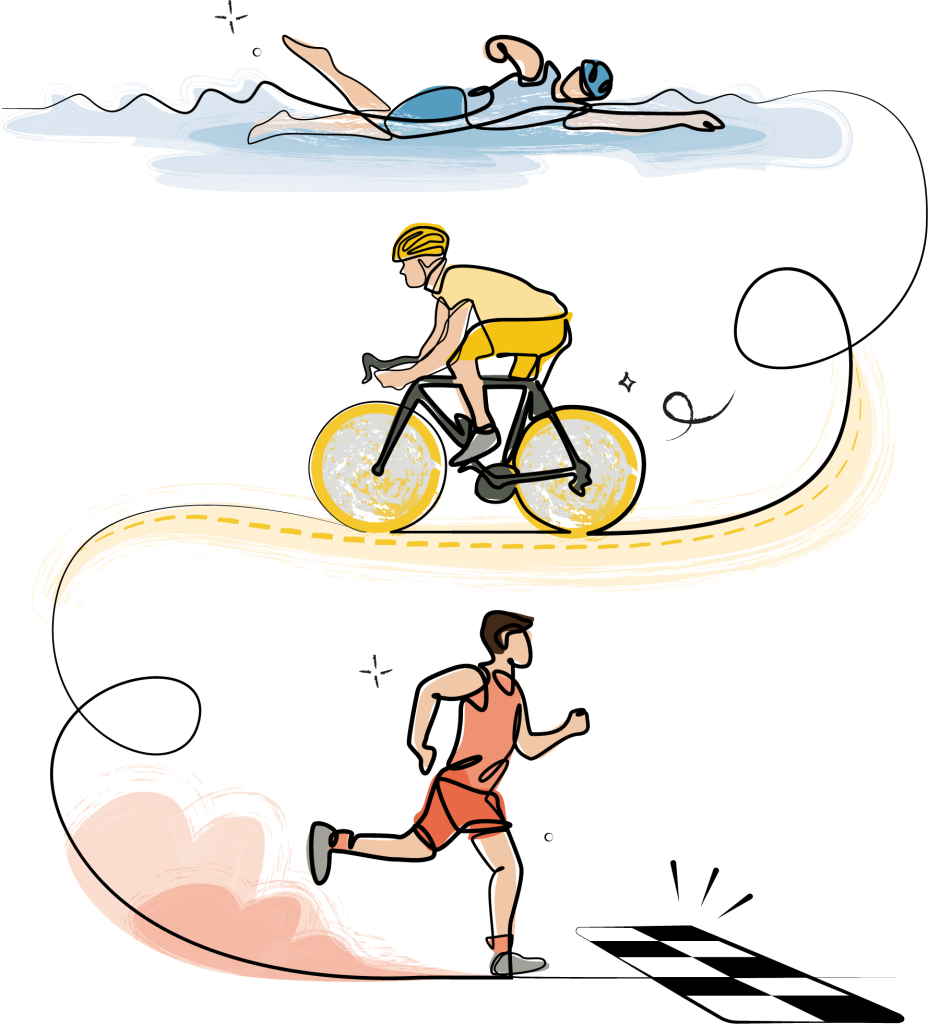
After that, I got back into training and taking running seriously again. I started looking at my 10 year goals, one of which was to do an Ironman, and I thought, why not make it a one year goal? I spent a year training really hard, getting into both cycling and swimming properly and just kept turning up and being consistent. I then went out to Mallorca with the club in May last year, got a bit overconfident and ended up in a sticky situation while cycling – I went over a 10 foot drop. Luckily, I only ended up with a heavily bruised back and a broken finger and even then I was still convinced I could do the Ironman that year. Eventually, I came to the realisation that it wasn’t the best idea. So I deferred for a year and came back fitter and stronger. My first Ironman is now taking place next Sunday (edit: Charlie completed his first Ironman on Sunday 2nd July with a time of 11:04:26).
I spend about 15-20 hours a week training, so it’s a big part of my life. It makes me more effective at everything I do and means that the time I spend on everything else is way more productive.
That’s so exciting. I have one last question. You’re obviously still very young, so I wondered, what advice would you give to another young person who’s maybe trying to figure out what they want to do with their life?
I’d say that the first goal is to discover who you are. If you don’t know what you want to do then try loads of different things and work out what you want from there. It’s important to develop that self-belief that you can do anything and that you’re not constrained by what you’ve done in the past, because you can quit something tomorrow and you’ll work something else out. When you realise that and stay consistent, you’ll accumulate so many long-term benefits in areas that are important to you.
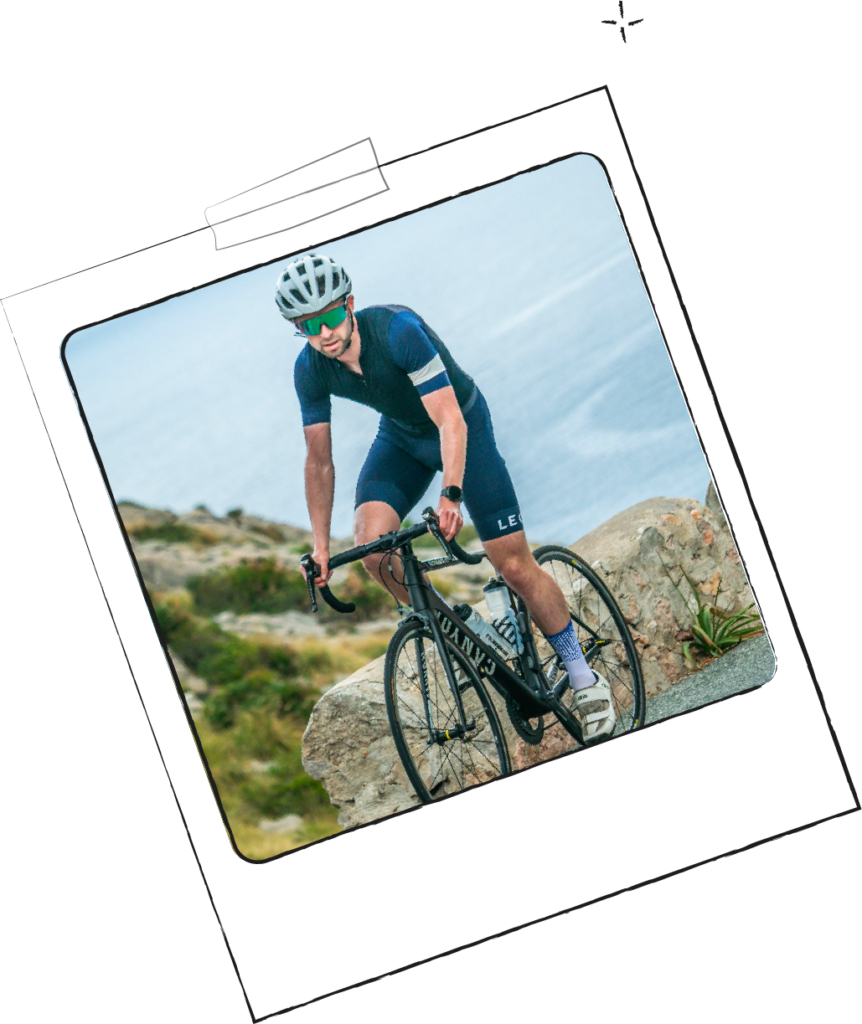
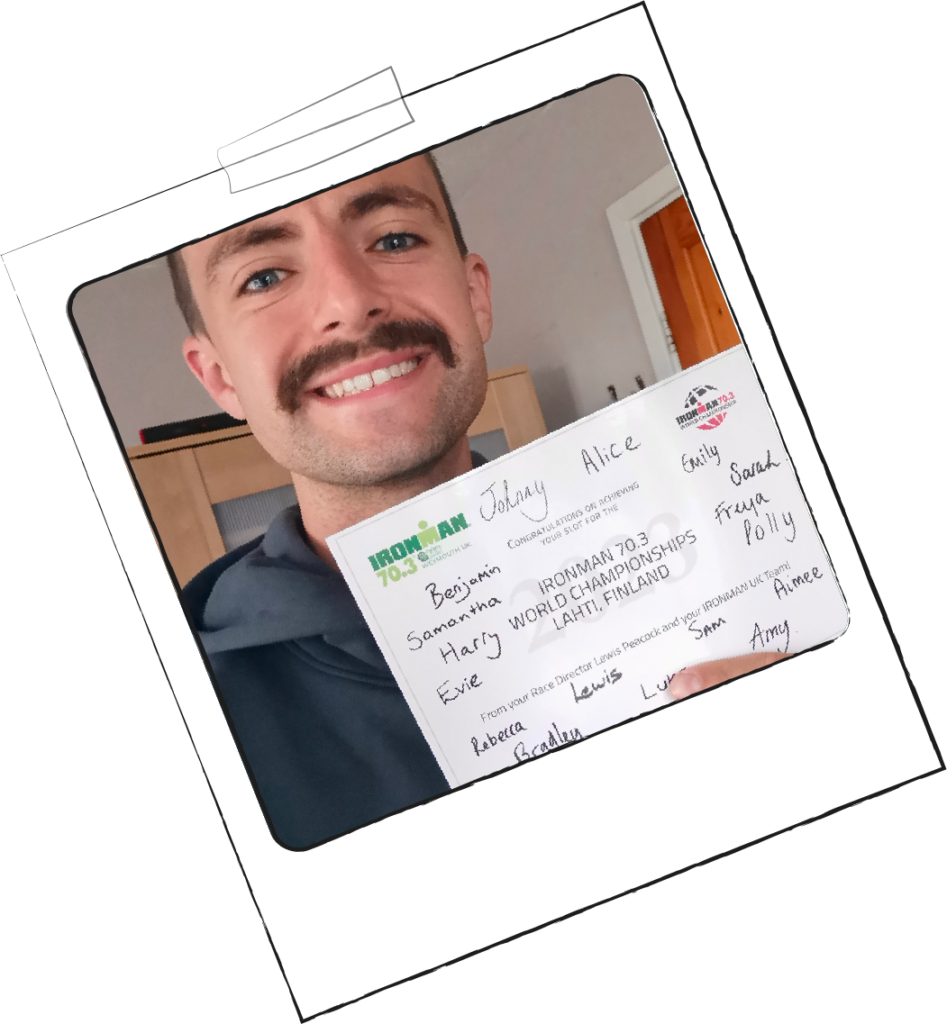
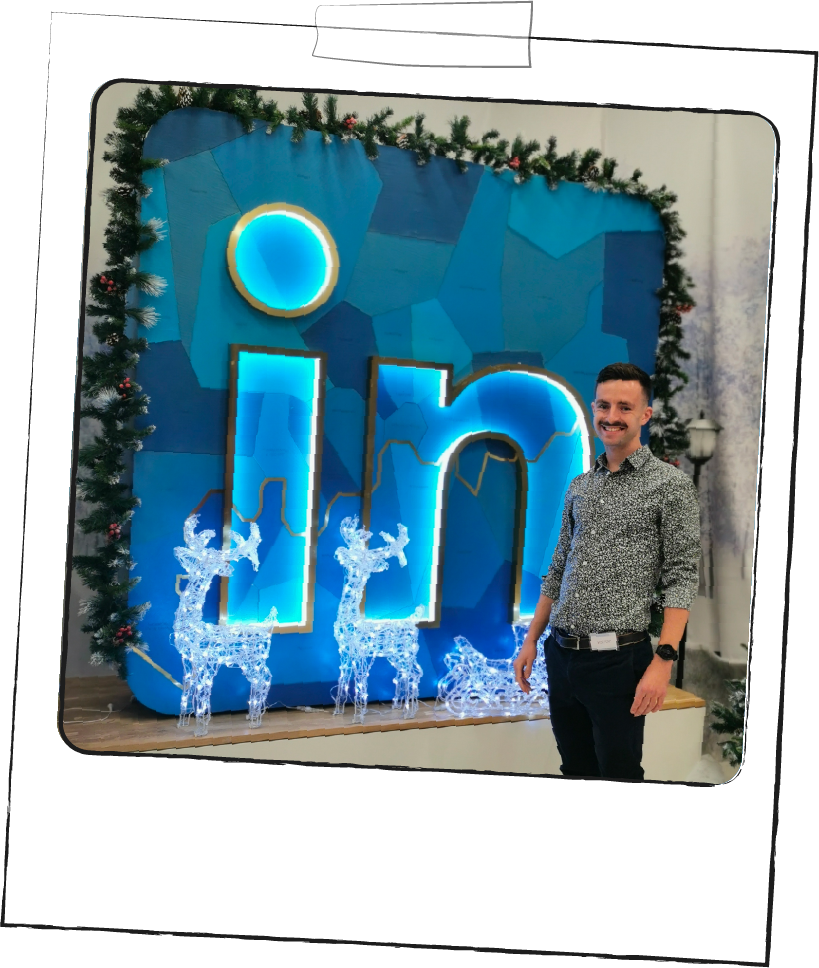
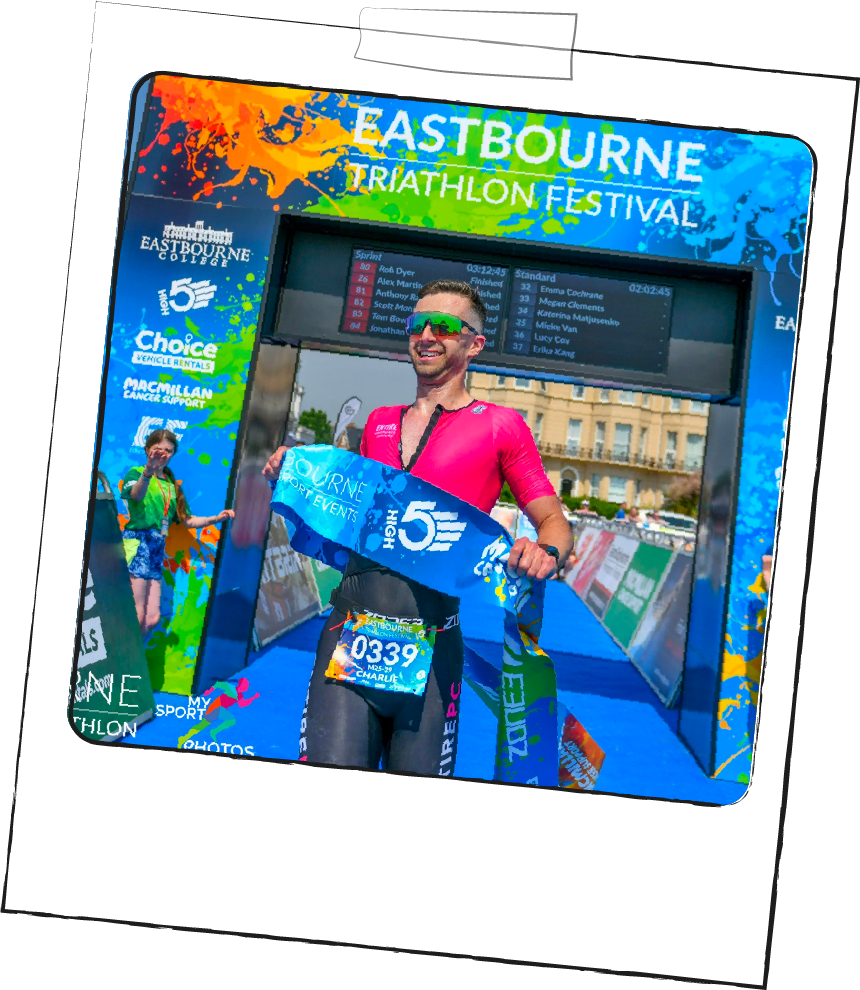
Want to kickstart start your own portfolio career? Become a member of our community and you can reach out to Charlie or the rest of the team directly to find out more about why we’re so passionate about what we do and discover how The Portfolio Collective can change your career.
Think this sounds like the right path for you? Come along to our monthly Community Welcome Call for new members to find out what a portfolio career could look like and how The Portfolio Collective can help you take those first steps towards professional success – and don’t forget to connect with our community!




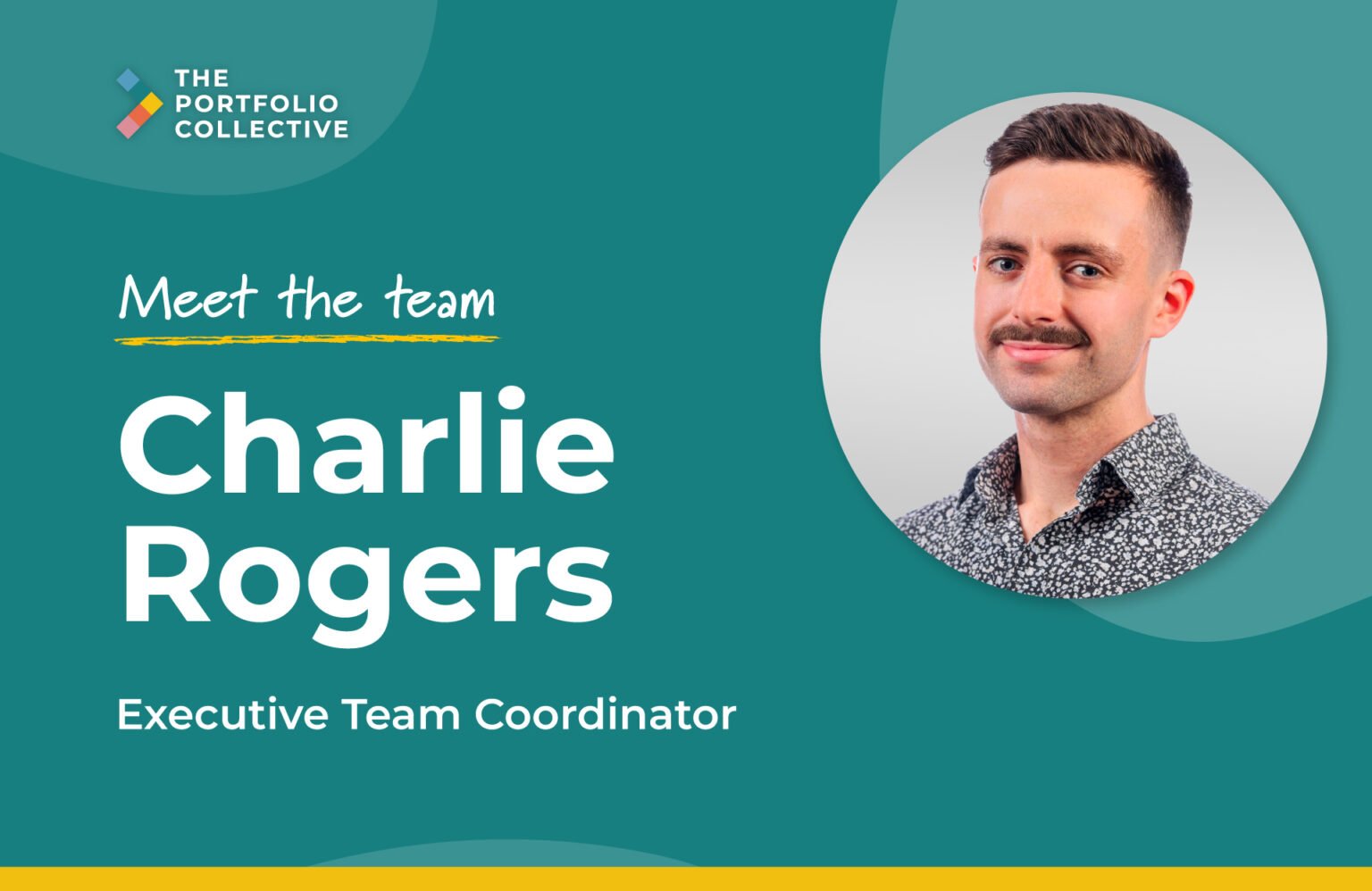
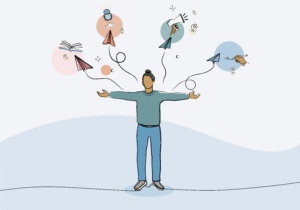


One response to “Meet the team: Charlie Rogers”
Thank you @ella_bernie for an awesome interview and @afonsorebelop for some beautiful graphics that both captured my background and reason for joining TPC beautifully.
Excited to be here – we’ve done lots of cool things already in the last 3.5 months and have SO MUCH more planned going forward. It’s gonna be good!
If the article resonates with you or you’d like to ask any questions I’d love to hear them